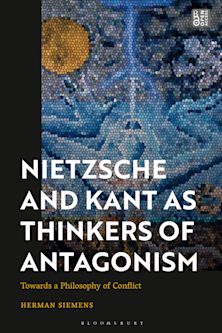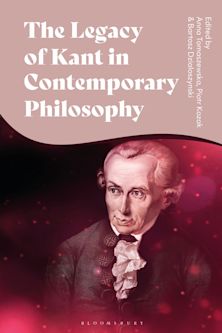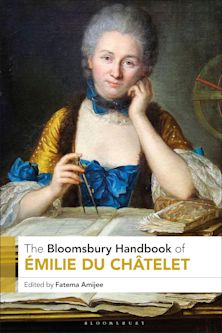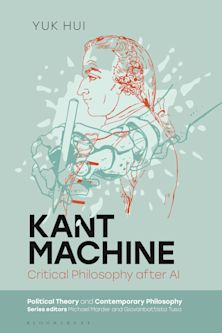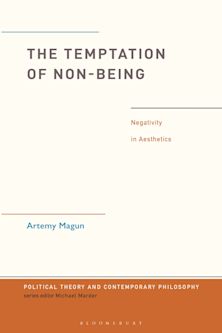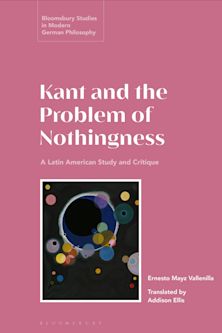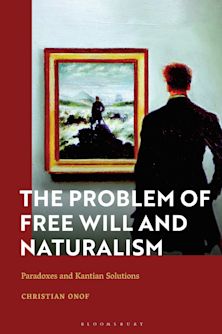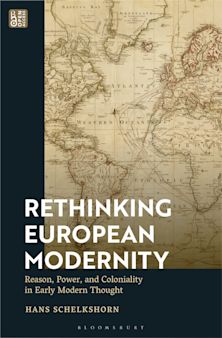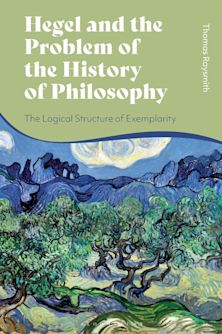- Home
- ACADEMIC
- Philosophy
- Modern Philosophy
- Leibniz Re-interpreted
Leibniz Re-interpreted
This product is usually dispatched within 1 week
- Delivery and returns info
-
Free US delivery on orders $35 or over
You must sign in to add this item to your wishlist. Please sign in or create an account
Description
Leibniz Reinterpreted tackles head on the central idea in Leibniz's philosophy, namely that we live in the best of all possible worlds. Strickland argues that Leibniz's theory has been consistently misunderstood by previous commentators. In the process Strickland provides both an elucidation and reinterpretation of a number of concepts central to Leibniz's work, such as 'richness', 'simplicity', 'harmony' and 'incompossibility', and shows where previous attempts to explain these concepts have failed. This clear and concise study is tightly focussed and assumes no prior acquaintance with Leibniz or optimism. It thus serves as an ideal entry point into Leibniz's philosophy.
Table of Contents
Chapter 2: The grounds for optimism
Chapter 3: The perfection of things
Chapter 4: The perfection of worlds I: Richness
Chapter 5: The perfection of worlds II: Simplicity
Chapter 6: The harmony of things
Chapter 7: Does the world increase in perfection?
Chapter 8: Conflicts and evils
Chapter 9: Conclusion: how to make the best of all possible worlds
References
Index
Product details
| Published | Jun 08 2006 |
|---|---|
| Format | Hardback |
| Edition | 1st |
| Extent | 192 |
| ISBN | 9780826490285 |
| Imprint | Continuum |
| Dimensions | 9 x 6 inches |
| Series | Continuum Studies in Philosophy |
| Publisher | Bloomsbury Publishing |
About the contributors
Reviews
-
"This is an important book because it recognizes that the Synoptic Problem is not unimportant rather it is vital. Christopher Tuckett's article 'Synoptic Problem' in the ABD gives a good succinct survey in the issues. This book can be regarded as being important to the commonly held view on the development of early Christianity as much as a rebuttal to the fames Oxford-Streeter two-documented hypothesis. The book is a magisterial achievement in hat it explains how Mark's gospel could be understood and explained from the perspective of its being dependent upon Matthew and Luke." -Restoration Quarterly
-
"An outstanding success. The authorshows a capacity for writing and arguing clearly and concisely, a skill and confidence in translation, a familiarity with both central and out of the way Leibniz texts and sophistication in interpretation and a good knowledge of other optimists The book is a pleasure to read: everything is perspicuous and the work is well-structured. " Professor Stuart Brown (Open University)
Blurb from reviewer
-
"Strickland has trawled through all of the works available so far and given the best account to date; writing with verve and polish, he makes it a thoroughly enjoyable experience." -Patrick Madigan, Heythrop Journal, March 2009
Patrick Madigan, Heythrop Journal
-
'a fitting introduction for the reader unfamiliar with Leibniz's optimism.' ~ Laurence Carlin, University of Wisconsin Oshkosh, Notre Dame Philosophical Reviews, February 2007
Laurence Carlin, University of Wisconsin Oshkosh, Notre Dame Philosophical Reviews












